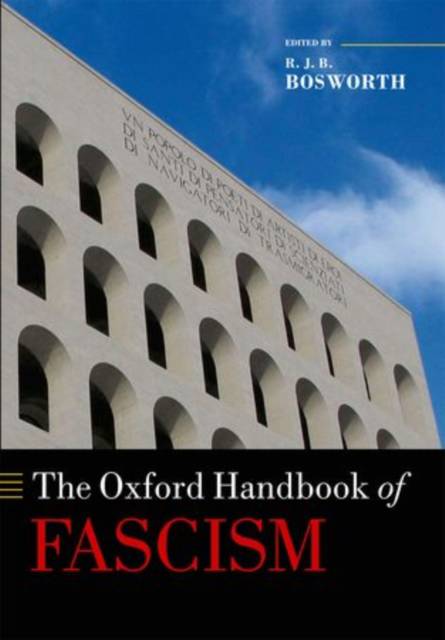
- Afhalen na 1 uur in een winkel met voorraad
- Gratis thuislevering in België vanaf € 30
- Ruim aanbod met 7 miljoen producten
- Afhalen na 1 uur in een winkel met voorraad
- Gratis thuislevering in België vanaf € 30
- Ruim aanbod met 7 miljoen producten
Zoeken
Omschrijving
The essays in this Handbook, written by an international team of distinguished scholars, combine to explore the way in which fascism is understood by contemporary scholarship, as well as pointing to areas of continuing dispute and discussion. From a focus on Italy as, chronologically at least, the 'first Fascist nation', the contributors cover a wide range of countries, from Nazi Germany and the comparison with Soviet Communism to fascism in Yugoslavia and its successor states. The book also examines the roots of fascism before 1914 and its survival, whether in practice or in memory, after 1945. The analysis looks at both fascist ideas and practice, and at the often uneasy relationship between the two. The book is not designed to provide any final answers to the fascist problem and no quick definition emerges from its pages. Readers will rather find there historical debate. On appropriate occasions, the authors disagree with each other and have not been forced into any artificial 'consensus', offering readers the chance to engage with the debates over a phenomenon that, more than any other single factor, led humankind into the catastrophe of the Second World War.
Specificaties
Betrokkenen
- Uitgeverij:
Inhoud
- Aantal bladzijden:
- 642
- Taal:
- Engels
- Reeks:
Eigenschappen
- Productcode (EAN):
- 9780199594788
- Verschijningsdatum:
- 19/11/2010
- Uitvoering:
- Paperback
- Formaat:
- Trade paperback (VS)
- Afmetingen:
- 170 mm x 244 mm
- Gewicht:
- 1111 g

Alleen bij Standaard Boekhandel
+ 131 punten op je klantenkaart van Standaard Boekhandel
Beoordelingen
We publiceren alleen reviews die voldoen aan de voorwaarden voor reviews. Bekijk onze voorwaarden voor reviews.










